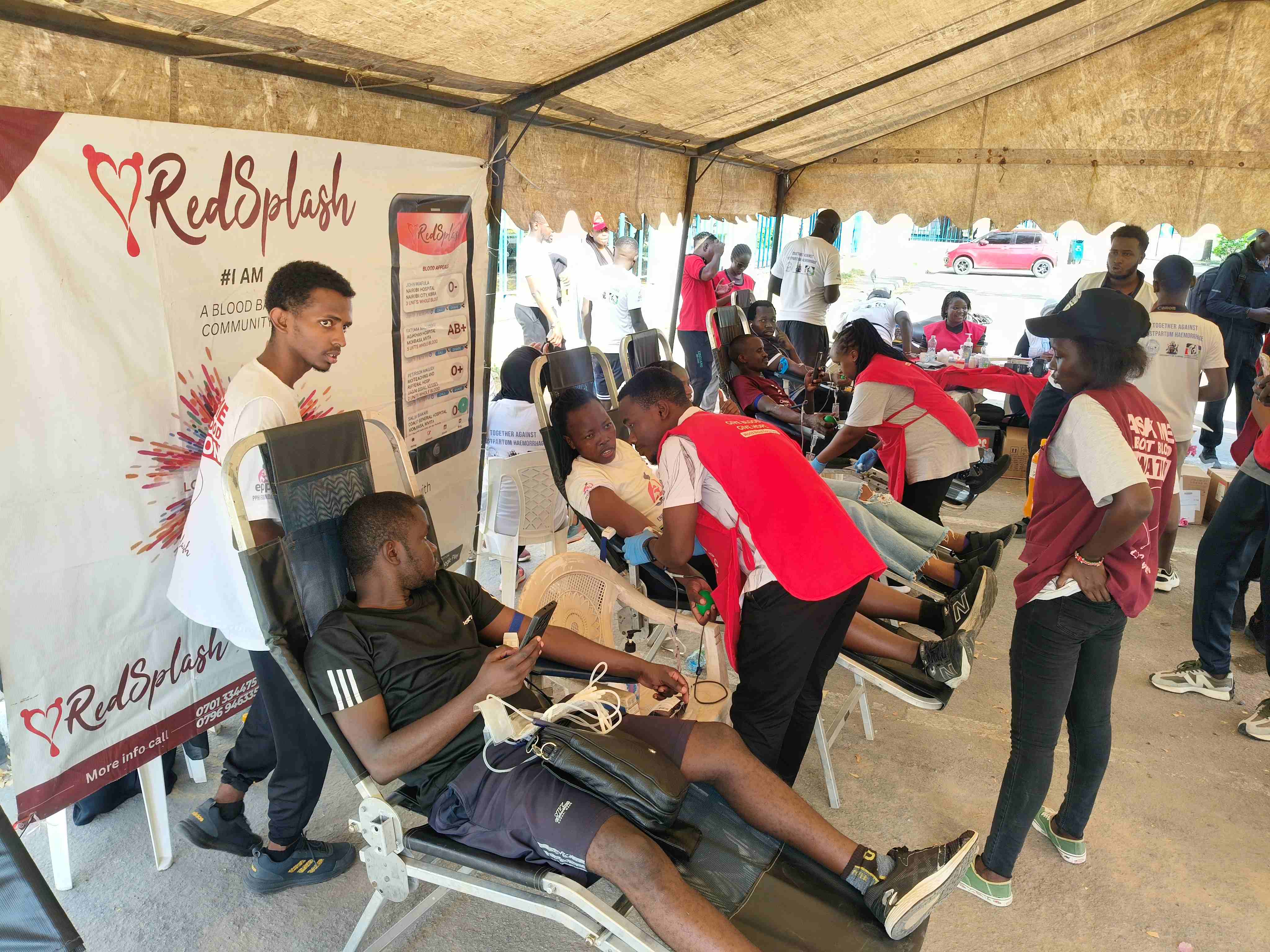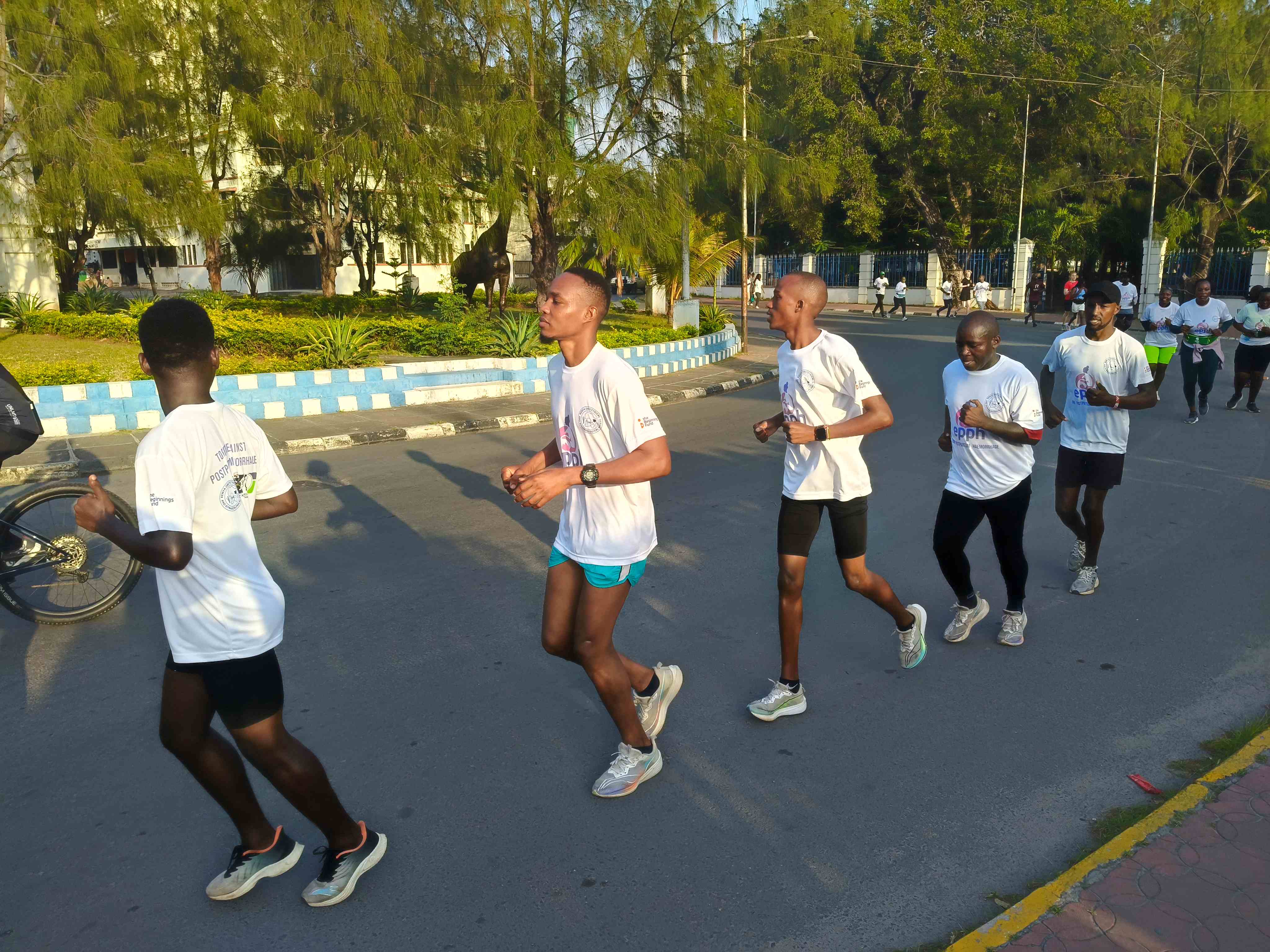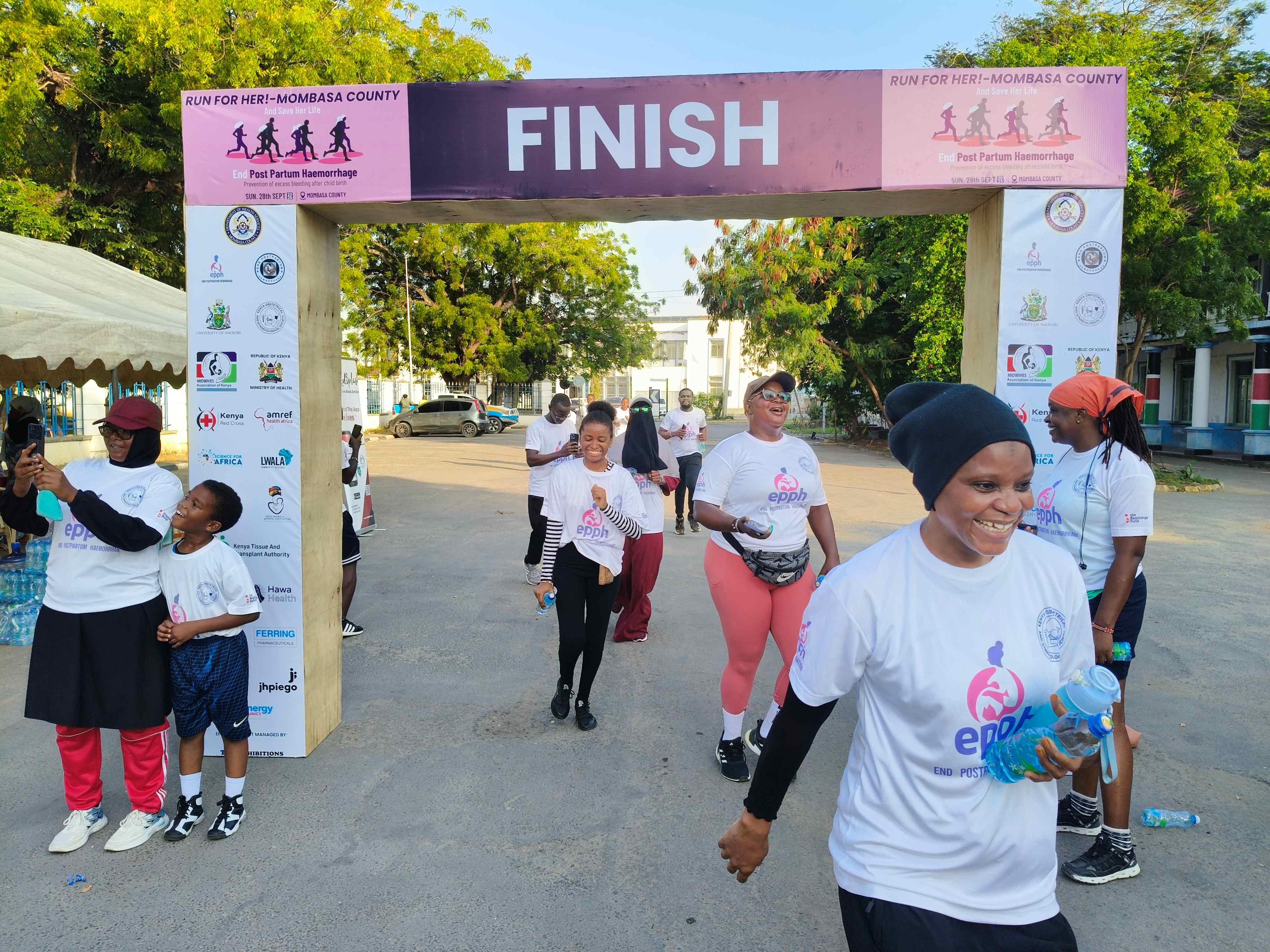
Stakeholders donate
blood in Mombasa / BRIAN OTIENO

Stakeholders run to
raise awareness about postpartum haemorrhage in Mombasa / BRIAN OTIENO

Stakeholders finish
a race to raise awareness about PPH in Mombasa / BRIAN OTIENO
Thirteen years ago, Florence Wambui got a scare that made her put a break on babies.
She had just delivered
her first and only child when suddenly blood started oozing profusely from her
private parts.
“I started feeling
dizzy and fell down. I faintly heard nurses calling for help and the next thing
I remember is me being surrounded by nurses. I was then told I had lost a lot
of blood after delivery,” Wambui said.
She said she was
lucky she gave birth in hospital.
“My pregnancy was
okay. I had no problem. All my clinics were okay,” she said.
It was the first
time she heard about postpartum haemorrhage (PPH), the excessive bleeding after
child birth, which can pose a major risk to maternal health.
“I was scared. It is really scary. Since then I have not had the courage to get pregnant again,”
Wambui said.
She spoke at
Treasury Square in Mombasa on Sunday after running six kilometers to raise
awareness about postpartum haemorrhage and donating blood.
Kenya Obstetrical
and Gynaecological Society (Kobs) Coast chairman Mitei Chepwogen said PPH is the
leading cause of maternal deaths.
At the Coast, the problem is more pronounced because of prevalence of anemia.
“And because of the
low altitude, many pregnant mothers who come to us do not exhibit
any symptoms of anemia.
“So you find a
pregnant woman has anemia but does not show any symptoms, so during childbirth,
even a slight loss of blood causes problems,” Chepwogen said.
She called on pregnant
women at the Coast to eat balanced diets and start clinic visits early.
In a normal delivery,
the acceptable blood loss is 500ml, while it is about a litre for a caesarian
section.
If it is any more,
then problems start.
“For those at the Coast,
due to the low altitude, by the time symptoms of low blood show, it means the
levels are dangerously low,” Chepwogen said.
Karanja Mwangi, a gynaecologist
and obstetrician in Mombasa, said PPH might be less common globally but in
Mombasa, it is very common.
“Up to 30 per cent
of women in Mombasa get PPH. Majority do survive but some unfortunately die,”
he said.
PPH, he said, is
preventable if one picks the risk factors during pregnancy.
“That is why we
advise that you start your clinic even before you get pregnant. When planning
to get pregnant, visit the clinic where some tests will be done to determine whether
one is fit to get pregnant or not,” Mwangi, who is the Kobs Coast treasurer, said.
“We will treat you
if your blood is low or if you have other problems, then you can get pregnant.”
He advises at least
eight clinic visits during pregnancy before delivery.
“Previously we used
to do four visits but we changed that to eight because pregnant women used to
come late for clinics, when five months pregnant or later, while some disappeared
after a couple of visits,” Mwangi said.
He said the first
trimester is the most crucial and that is when clinics are most important.
Each clinic, he
said, has its own test for various issues like blood levels, ultrasound,
HIV/AIDS testing, among others.
The clinics also
help pregnant women know when the labour pains starts, what symptoms they
exhibit.
He said clinics
help pregnant women know and be aware of danger signs that occur and could
point to PPH.
These include
headaches, tiredness after a short distance or minimal work, shortness of breath,
minimal movement of the baby in the womb, among others.
“If you don’t go
for clinics, one would not know these,” he said.
Amina Ibrahim, a
nurse and midwife, said PPH is not a disease but an emergency during childbirth.
She said the risk
factors for PPH include having had many pregnancies, boogey uterus, having
twins, anemia, having had PPH before, those with clotting factors, pressure, among
others.
The Mombasa county
Likoni subcounty reproductive health coordinator said PPH can be prevented by
clinic visits.
Ibrahim, who is the Midwives Association of Kenya Coast coordinator, said community health promoters in Mombasa are being trained on this to ensure they empower the community with information.
















